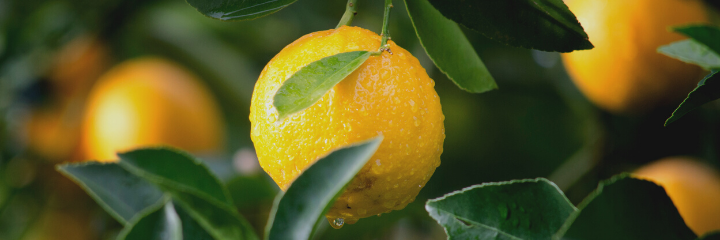How We Produce?

Citrus Farming
Since citrus cultivation requires long-term, intense labor, we must understand and learn the climate and soil requirements very well in order to make correct evaluations. In our country, citrus cultivation areas have a subtropical climate.
In general terms, the growth temperature for citrus fruits is considered as 12.8 degrees. In other words, the activity of the above-ground organs (shoot formation, etc.) of citrus fruits starts from this temperature point.
The development in citrus tends to accelerate until the temperature rises to 18-20 degrees. The growth reaches its peak at 26-28 degrees. This point is where growth is the fastest and photosynthesis activity is highest. Development and growth slows down at 30-32 degrees. At 38-39 47 degrees, growth and development almost stop and go down to the lowest level.
Soil is basically a support and basis for citrus fruits. The point that should be emphasized for citrus fruits is that the soil has an aerated structure. Because citrus roots require high amounts of oxygen, they are very sensitive to airlessness. They show an immediate drowning response in heavy and airless soils. For this reason, it is compulsory that the soil on which citrus fruits will be grown is primarily in a ventilated and filter structure.
After the obligation of the soil to have aeration feature, one of the most important conditions in terms of soil for citrus fruits is the presence of stagnant water, namely pond or ground water. Citrus is not a marsh plant. Citrus doesn't like much water.
For a healthy and productive citrus growing; the soil must be aerated, of a certain depth and have drainage (drain excess water to prevent water from accumulating in the soil)!
Irrigation has a direct effect on root development, tree width, fruit quality and yield. Irrigation; It directly affects the intake of air, temperature, salinity and nutrients of the soil in the root zone, and consequently root development and health. Excessive water can cause root and root throat rotting and chlorotic leaves. The weakening and illness of the roots can also have a negative impact on tree crown development, fruit set and quality, leading to weakening of the tree and reduced yield and even death of the tree. Lack of water also negatively affects tree growth, fruit development and quality and yield. The fruits that are dehydrated during the development period cannot grow and their skins crack. This causes rotting and reduces quality. It is possible to increase the yield with a suitable irrigation.
Citrus fruits have a longer post-harvest life compared to other tropical and subtropic fruits. Depending on the varieties, the durability period after harvest is related with the whole chain starting from the garden, harvesting, transportation, post-harvest applications and finally reaching the end consumer.
*As Isotlar Tarım business, we are cultivating in citrus farming by following current standards and regulations. During the period from the beginning of the planting process to the harvest, we act consciously in many issues such as proper care of the soil, watering the soil with the right methods, and the health and safety of the employees.
